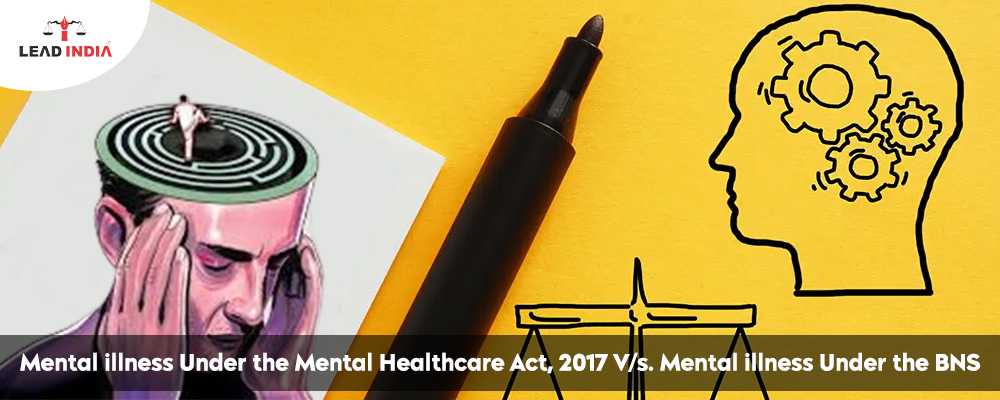Before MHA 2017, the Mental Healthcare Act of 1987 prioritized the institutionalization of mentally ill persons and denied them any rights. The Act gave judicial officers and mental health facilities disproportionate power to authorize long-term hospitalizations, often against the individual’s informed consent and preferences. As a result, some people continue to be admitted and languish in mental health facilities against their will.
It exemplified the colonial-era Indian Lunacy Act of 1912, which linked criminality and insanity. Asylums were locations where “abnormal” and “unproductive” behavior was investigated as an individual phenomenon, separating the individual from society. The intervention is intended to rectify an inherent deficit or “abnormality,” ultimately leading to “recovery.” In 2017, the MHA demolished the clinical heritage associated with asylums.
Need A Legal Advice
The internet is not a lawyer and neither are you. Talk to a real lawyer about your legal issue

Mental Healthcare Act, 2017
This Act defined mental illness as “a major impairment of thought, mood, perception, orientation, or memory that significantly impairs judgement, behaviour, capacity to recognise reality, or ability to meet the ordinary demands of life, including mental conditions associated with alcohol and drug abuse.” It also grants patients the right to access facilities such as rehabilitative services in hospitals, communities, and at home, as well as sheltered and assisted housing. It regulates PMI (Person with Mental Illness) research and the use of neurosurgical treatments.
BNS
On August 11, the Bhartiya Nyaya Sanhita Bill was introduced in the Lok Sabha, with the Bhartiya Nagarik Suraksha Sanhita and the Bhartiya Sakshya Adhiniyam legislation. The proposed laws used the term ‘mental illness’ as defined in clause (a) of Section 2 of the Mental Healthcare Act of 2017.
The Parliamentary Standing Committee on Home Affairs, chaired by BJP MP Brijlal, recommended that the term ‘mental illness’ in the proposed laws be changed to ‘unsound mind’ because mental illness appears to encompass mood swings or voluntary intoxication. The panel made these observations in its report after reviewing the proposed laws.
Mental Healthcare Act, 2017 V/s. Mental Illness under BNS
The IPC protects those with disordered minds from prosecution. The BNS transforms this into a person suffering from mental illness. Mental illness is defined as excluding mental impairment and including alcohol and drug misuse. Individuals with mental retardation may face prosecution, whereas those who are voluntarily intoxicated may be exonerated.
- According to the IPC, any act committed by a person of unsound mind does not constitute an offense. The BNS keeps this provision, but changes ‘unsound mind’ with ‘mental disease’. It states that mental illness is specified under the Mental Healthcare Act of 2017 (MHA). According to the MHA, 2017, mental illness is a significant problem of thinking, orientation, or memory that severely limits one’s ability to recognize reality. Mental retardation or insufficient development of the mind are explicitly excluded from the diagnosis of mental disease. Using this notion of mental disease to absolve someone from criminal liability may deny people with mental retardation the right to a trial. The Code of Criminal Procedure (CrPC) 1972, was revised in 2008 to require a clinical test to determine whether the person was suffering from mental retardation or unsoundness of mind (both might be used as reasons to acquit the defendant).
- The MHA, 2017 defines mental illness as including alcohol and drug misuse. As a result, if an alcoholic commits an offense while under the influence, he may be able to use mental illness as a defense. This defense may be applicable even if he voluntarily drank drink or drugs. This violates the IPC’s general defense of intoxication, which exclusively exempts acts committed when involuntarily intoxicated from criminal culpability. The Standing Committee on Home Affairs (2023) suggested reverting to the phrase unsound mind.
Lead India provides free legal advice, internet information, and other legal services. We offer a forum where you may talk with a lawyer and ask legal questions. Lead India’s Lawyer may assist you with any legal matters. Lead India’s solicitors can help you with any legal concerns. Lead India also offers free online legal help in India. In addition to providing online legal aid, Lead India allows users to ask specialist inquiries for free.





 Talk to a Lawyer
Talk to a Lawyer